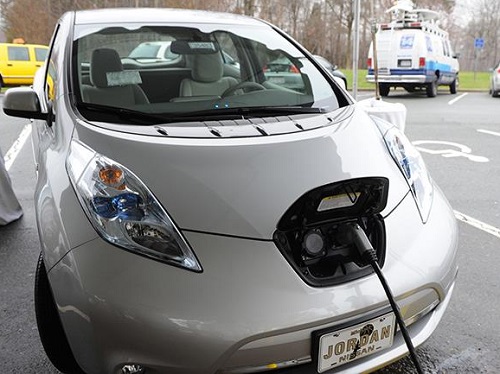The North Carolina Department of Transportation recently published an online map marking the locations for the first batch of electric vehicle or EV charging stations funded through the federal National Electric Vehicle Infrastructure or NEVI formula program.
[Above photo by NCDOT]
The agency said its online map identifies the 11 locations along the alternative fuel corridor that will comprise Phase 1 of the project. NCDOT identified the 11 locations because they will fill the gaps where fewer EV charging stations currently exist and serve a more geographically diverse group of people in both rural and urban areas.
Each location on the GIS map represents a cluster of one or more exits along the alternative fuel corridor, NCDOT said – and applicants must locate proposed charging stations within the designated clusters, with one charging station per cluster.
The agency noted that it received $109 million in NEVI funds to develop the network along interstates, major highways and in communities. The funds are to be used to reimburse businesses for project costs, including procurement, installation and operation of EV charging stations.
NCDOT said Phase 1 of its EV charging network buildout will involve installation of DC Fast Chargers along interstates and major highways, along the alternative fuel corridors designated by the Federal Highway Administration. Those DC Fast Chargers will be able to charge an electric vehicle in about 20 minutes.
Phase 2 will then involve the build out of community-based DC fast chargers and Level 2 chargers that take between four and eight hours to fully charge an EV.
The agency added that expects to fully build out the state’s EV charging infrastructure over the next seven years.
“The build out of the EV charging stations will help our state advance clean transportation and be a great economic opportunity for businesses of all sizes,” said Paula Hemmer, NCDOT’s statewide initiative senior engineer, in a statement. “The map gives businesses an opportunity to determine where it would be economically feasible to build and operate EV charging stations,” she noted. “There are a lot of things to consider like whether a site is easily accessible to all travelers and a site’s proximity to amenities like restaurants and hotels.”
In February, NCDOT said it expects to issue a request for proposals for people interested in applying for funds for Phase 1 of the EV charger installation.

